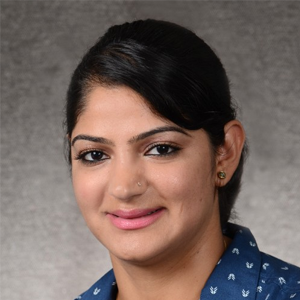
PROLAB brings science across borders
During the summer of 2022, Horacio Martín Pallarés often spent time in the Stowers Institute for Medical Research library, playing piano and making new friends to unwind after a fruitful day at the bench. Pallarés, who recently earned his Ph.D. at the Leloir Institute Foundation in Argentina, considers his three months learning ribosome profiling at Ariel Bazzini’s lab at Stowers to be instrumental in his career progression, and he’s preparing to return as a postdoc in Bazzini’s lab.
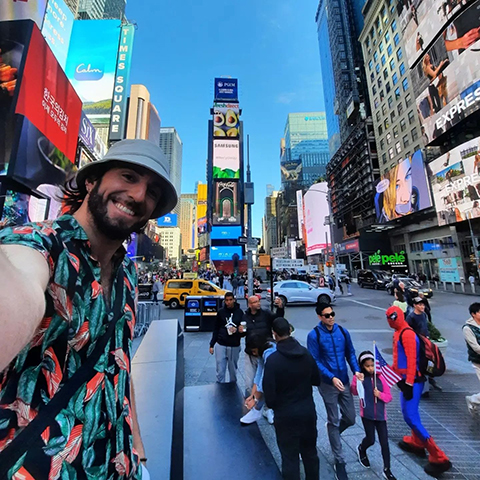
Pallarés’ first stay at Stowers was made possible by the Promoting Research Opportunities for Latin American Biochemists, or PROLAB program, a joint initiative of the American Society for Biochemistry and Molecular Biology, the Pan-American Society for Biochemistry and Molecular Biology and the International Union for Biochemistry and Molecular Biology. Over more than a dozen summers, PROLAB has given more than 100 biochemists and molecular biologists travel grants so they could gain exposure to new scientific technologies at collaborators’ labs in the U.S. and Canada.
In 2005, Judith Bond, then the ASBMB’s president, traveled to the PABMB annual meeting in Buenos Aires, where she was impressed by the work presented by students and postdocs.
“The science was of high quality, even though some of these countries are experiencing political unrest and variable economies,” Bond said.
She could foresee many benefits from increased collaboration between North and South American scientists, with researchers in the U.S. looking south for untapped talent.
Joined by their shared vision to foster international collaborations, four former ASBMB presidents — Bond, Bettie Sue Masters, Heidi Hamm and Susan Taylor — submitted a proposal to the ASBMB Council to provide funding for the program.
Along the way, IUBMB and the PABMB provided additional support, expanding the program to include international students from Spain and Portugal.
The ASBMB has continually renewed PROLAB since its inception, based on the excellent feedback the Awards Committee has received from both the trainees and the PIs who take them into their labs.
Host–virus interactions
As a Ph.D. student, Pallarés found that the Zika virus counteracts the host cell's antiviral response by modulating the translation of antiviral genes. To verify this observation, he needed to use a high-throughput approach such as ribosome profiling, which measures gene expression at the transcriptome level.
“I wanted to do ribosome profiling, and not many laboratories do that kind of science here in Argentina,” Pallarés said. “Actually, there are none.”
He heard about PROLAB from Diego Alvarez, a professor at the University of San Martin who had sent students from his lab to the U.S. with the program.
“I got very excited,” Pallarés said.
Ariel Bazzini, an expert in gene expression, especially in RNA stability and translation, and a pioneer in adapting ribosome profiling in a whole zebrafish embryo, was a perfect fit for what Pallarés was looking for.
Pallarés applied the technology to answer critical questions for his thesis project; his findings will soon be published in a leading scientific journal. He also brought his new skills back to Argentina, where he mentored peers and started performing ribosome profiling.
“Sometimes, we don’t realize that one Ph.D. student goes to another lab and learns something, and when he goes back, he can teach that to the entire community,” Bazzini said.
A perfect match
Bazzini, also originally from Argentina, benefited from a year in the U.S. as an undergraduate, and he wants to give others similar experiences.
“PROLAB presents a great opportunity to meet a scientist,” he said. “It’s a way for us to give people who don’t know about the Stowers Institute a chance to work in a different type of institute for a couple of months, and then they can leave and spread the word of how we work.”
As a postdoc, Pallarés wants to continue his work on Zika and see if similar mechanisms of altering the translation of host genes occur in other viruses transmitted by mosquitoes, such as dengue or yellow fever.
“I want to study how the genome of the viruses are translated as well,” he said, “if there are viral small open reading frames that could be translated and impact the host cell.”
He also hopes to learn other techniques, such as mass spectrometry, and eventually return to Argentina and open a laboratory implementing these techniques.
“Horacio brings with him a lot of virology experience,” Bazzini said. “Now, we can now apply molecular tools that we’ve developed in the lab to understand how thousands of genes are regulated during viral infection…. He’s bringing different expertise and problems to the lab’s table and expanding our research direction. We’re very excited.”
A career in reproductive biology
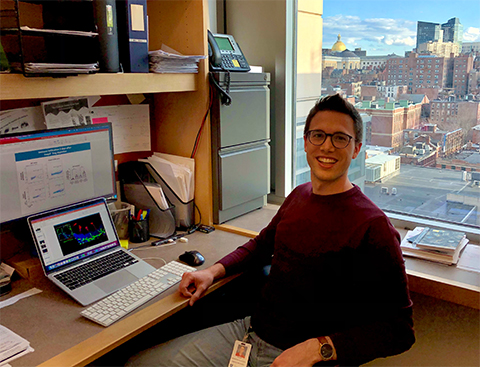
Ferran Barrachina, now a senior scientist at a clinical-stage startup, Gameto, received a PROLAB award as a Ph.D. student at the University of Barcelona in 2019 to visit Sylvie Breton’s lab at the Massachusetts General Hospital and Harvard Medical School. Barrachina’s research focuses on reproductive biology, from understanding sperm maturation in the epididymis to the role of immunology in male infertility and, most recently, developing therapies to improve female reproductive health.
During his PROLAB fellowship, Barrachina learned techniques such as flow cytometry and high-resolution confocal microscopy and performed animal studies, allowing him to finish key experiments for his thesis work. After defending his thesis in Spain, Barrachina returned to Breton’s lab for his postdoc.
“Those two months were extremely productive,” Barrachina said. “I managed to publish a paper and present a seminar and two posters. …I also improved my language skills and got well-versed in a different culture.”
At Gameto, Barrachina is helping build a cell-engineering platform that can differentiate human induced pluripotent stem cells into different types of ovarian cells.
“We’re trying to mimic an ovary on a dish, and then we can use this platform to improve the efficiency of current IVF processes,” he said.
Barrachina said his PROLAB and postdoc experiences helped him transition to industry and use his skills to improve women’s reproductive health.
Life comes to a full circle
In the spring of 2012, Maria Jose Iglesias, a Ph.D. student at the University of Mar Del Plata, was rushing to gather documents to apply for a new fellowship, PROLAB, before the deadline. A few months later, she learned that all her running had borne fruit.
Iglesias spent three months at Mark Estelle’s laboratory at the University of California, San Diego, studying how nitric oxide increases auxin signaling through protein modification of auxin receptors. She then returned to Argentina, finished her Ph.D., and moved to Bueno Aires for postdoctoral research. She was recently appointed a group leader at Instituto de Fisiología, Biología Molecular y Neurociencias, CONICET-UBA, Bueno Aires, and continues her work on how protein modifications help plants adapt to changing environments.
“It was a lot of years ago, and since then, I’ve had short research experiences in Spain and Germany,” Iglesias said. “But I still remember my short time in San Diego. It was very significant, and the city is great.”
What made her stay so significant? “Firstly, the ability to perform a lot of experiments and collect data in a few months that improved the quality of my thesis and journal articles,” she said. “Secondly, it was my first experience in a world-class university. You have a lot of bright, brilliant scientists in the same place. In Argentina, we face difficulties in buying reagents and supplies; almost everything must be imported from the U.S. or Europe. …Everything is harder.”
Working abroad can provide perspective on improving the system at home, she said. “One should try to establish new collaborations between scientists internationally, nourish previous collaborations and try to give exposure to trainees and students in Latin America to visit labs in the U.S. or Europe.”
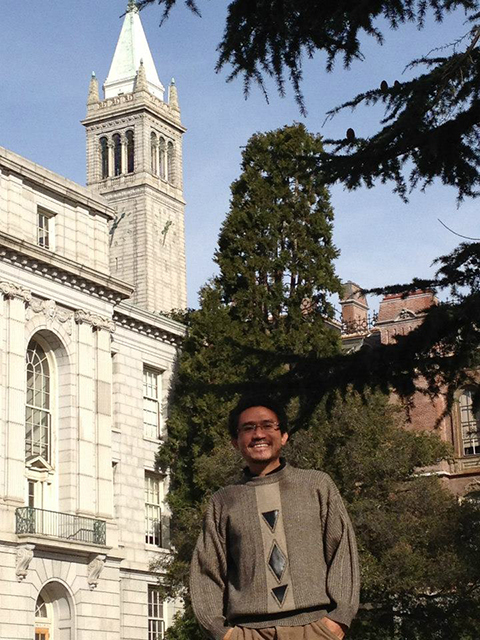
That is precisely what Iglesias is planning. She’s wants one of her students to apply for the PROLAB fellowship to work on a new project in Estelle’s lab.
“We are returning to a scientific collaboration,” she said. “This time, not as a student but as a Ph.D. supervisor. So, it's like a full circle.”
A roadmap for future programs
Omar C. Herrera, a 2013 PROLAB awardee from Peru, worked in Carlos Bustamante’s lab at the University of California, Berkeley. Now a scientist at AxBio, Inc., he noted the program’s ongoing benefits.
Without PROLAB, “I wouldn't be able to initiate the collaboration between the lab in Berkeley and the lab in Peru,” Herrera said. “That collaboration gave me the opportunity to do my Ph.D. at UC Berkeley and be exposed to a collaborative environment, to a different culture, to the state-of-the-art science. It's like a perfect butterfly effect.”
S. Patricia Becerra, a senior investigator at the National Eye Institute and a three-time host of PROLAB fellows, said the program builds strong reciprocal ties.
"All three fellows' stays … strengthened the relationship between the labs in their home countries and my lab,” Becerra said. “For us, we learn quite a bit of what they are doing, and for them, they learn whatever we are doing here.”
Judith Bond and Bettie Sue Masters have proposed a formal analysis of PROLAB, measuring benefits for both the trainees’ home labs and those they visit.
“If the results are as good as I think they will be from our hearsay, I think the ASBMB might consider other types of programs like it,” Bond said. “This is geared to South America, but there are other countries and emerging areas that might also benefit from something like this.”
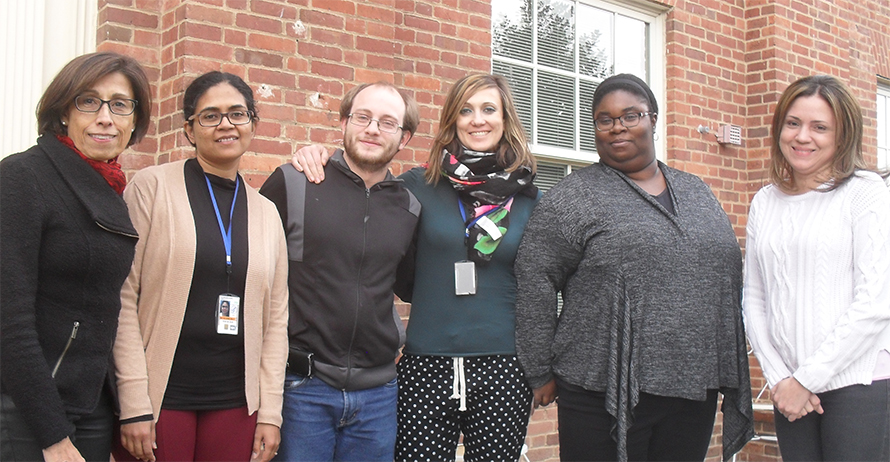
Learn more
Applications for the 2025 PROLAB awards will be accepted starting in November. Learn more about the program in the Career Resources section of asbmb.org.
Enjoy reading ASBMB Today?
Become a member to receive the print edition four times a year and the digital edition monthly.
Learn moreFeatured jobs
from the ASBMB career center
Get the latest from ASBMB Today
Enter your email address, and we’ll send you a weekly email with recent articles, interviews and more.
Latest in Careers
Careers highlights or most popular articles

Embrace your neurodivergence and flourish in college
This guide offers practical advice on setting yourself up for success — learn how to leverage campus resources, work with professors and embrace your strengths.

Upcoming opportunities
Apply for the ASBMB Interactive Mentoring Activities for Grantsmanship Enhancement grant writing workshop by April 15.

Quieting the static: Building inclusive STEM classrooms
Christin Monroe, an assistant professor of chemistry at Landmark College, offers practical tips to help educators make their classrooms more accessible to neurodivergent scientists.

Unraveling oncogenesis: What makes cancer tick?
Learn about the ASBMB 2025 symposium on oncogenic hubs: chromatin regulatory and transcriptional complexes in cancer.

Exploring lipid metabolism: A journey through time and innovation
Recent lipid metabolism research has unveiled critical insights into lipid–protein interactions, offering potential therapeutic targets for metabolic and neurodegenerative diseases. Check out the latest in lipid science at the ASBMB annual meeting.

Hidden strengths of an autistic scientist
Navigating the world of scientific research as an autistic scientist comes with unique challenges —microaggressions, communication hurdles and the constant pressure to conform to social norms, postbaccalaureate student Taylor Stolberg writes.

